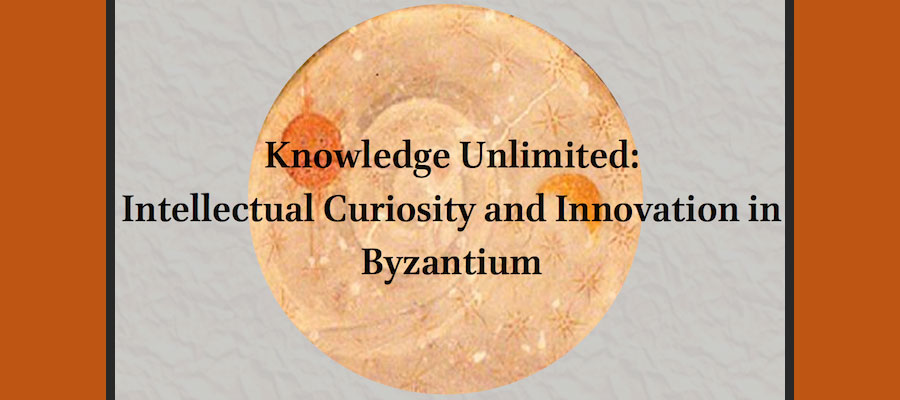Knowledge Unlimited: Intellectual Curiosity and Innovation in Byzantium, New Europe College, Bucharest, February 11–12, 2016
The workshop focuses on three key notions—knowledge, curiosity, and innovation—and examines how they were conceptualized in Byzantine learned culture between the ninth and the fourteenth centuries. Three lectures introduce respective reading-group discussions of Byzantine texts of the period. In both lectures and reading groups, our goal is to examine how Byzantine thinkers wrote about knowledge production and acquisition, how they reflected on their own role in this processes, as well as what the social and political structures underpinning and facilitating the latter were. We pay particular attention to the ‘limits’ of knowledge set up by the conventions of Byzantine paideia and problematize them using the concepts of innovation, progress, and curiosity as hermeneutical tools. In other words, the aim of the workshop is to elucidate questions such as:
- What kind of knowledge was conceived as acceptable and legitimate in Byzantium, or in other terms, should knowledge be sought for its own sake or because it leads to virtue; and consequently, which type of knowledge was considered morally acceptable?
- Could and should one pursue knowledge further than the received view?
- Is the discovery of new knowledge possible and, in this respect, is intellectual progress possible, as well as scientific advancement?
- Did the definition of paideia change throughout time and, if yes, did it lead to redefining the boundaries of what the scholar was supposed to know? Moreover, did the Byzantine scholars feel necessary to adapt by changing their strategies of self-fashioning?
- Finally, how was the production and acquisition of knowledge conditioned by contemporary networks of friendship and patronage, as well as by the scholars’ social background?
Format
The workshop is structured in three public lectures, each of them introducing a thematically-connected reading group. In each reading-session the participants will analyse and discuss a collection of primary sources and secondary literature. The workshop’s working language is English.
Invited Speakers
- Dr. Aglae Pizzone (University of Southern Denmark, Centre for Medieval Literature)
- Prof. Niels Gaul (School of History, Classics & Archaeology, University of Edinburgh)
- Prof. Margaret Mullett (Professor Emerita of Dumbarton Oaks Research Library and Collection)
Workshop Participants
Adrian Carabă, Lorenzo M. Ciolfi, Marina Cristea, Mihnea Dobre, Ionuț Epurescu-Pascovici, Mihai Faur, Niels Gaul, Georgiana Huian, Divna Manolova, Dunja Milenkovic, Mihail Mitrea, Margaret Mullett, Kristina Nikolovska, Iulia Nițescu, Ovidiu Olar, Aglae Pizzone, Ana-Maria Răducan, Ionuț Alexandru Tudorie, Marilena Vlad
Registration is required.
Inquiries can be made at divna.manolova@icub.unibuc.ro.
